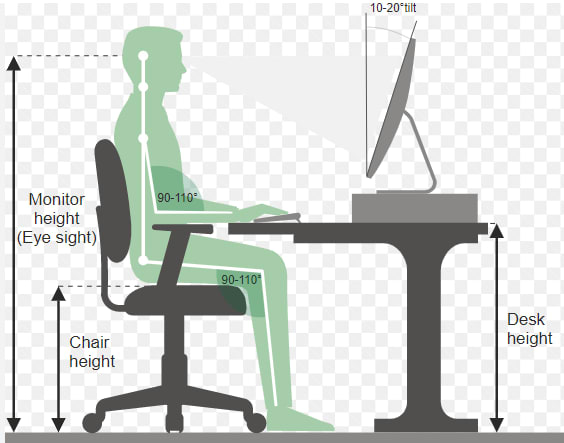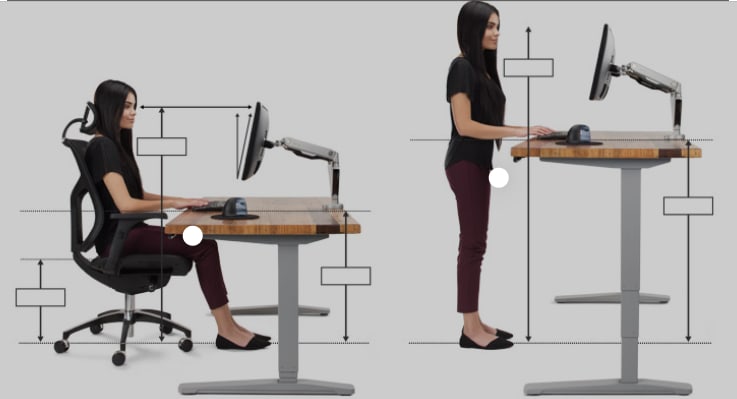The ability to stay focused during a coding session is rare among developers, especially newbies,because it requires enough brain power to solve a problem programmatically.
Programming can be hectic and stressful, and many developers will allow distractions or procrastination to eat up their time.
Although the problem you are trying to solve has a solution already, it still needs to be implemented.
Importance of staying focused during coding sessions
Staying in focus during a coding session has benefits for beginners and experts.
Some of the benefits are
- Faster learning: Programming is a continuous learning process. By focusing, you can absorb new skills and information faster, understand new concepts and grasp frameworks and programming languages efficiently. Staying in focus will elevate your brain power and help you become a better developer.
- Increased productivity: When you focus on the code, you can complete a task faster. It also enables you to reduce distractions and stay on track, accomplishing more tasks equals increased productivity.
- Deepen problem-solving: Programming often involves solving complex problems. When you focus, you can better analyze problems, develop a deeper understanding, and implement the solution efficiently.
- Improved code quality: Full concentration during a coding session opens your brain to understanding the problem and implementing an easy-to-read code solution. A focused mind is also less likely to make any errors.
- Time management: Most projects you will ever work on have deadlines. You must have the focus to be able to submit on time. You can avoid unnecessary delays and mistakes and complete tasks within time by maintaining focus.
- Reduced frustration and stress: An unfocused mind can quickly become frustrated and stressed. Staying focused gives you an edge over distractions and interruptions that can lead to wasting time and leave you frustrated and stressed.
How distractions can hinder productivity and progress
Distractions can hamper productivity and slow down progress during coding sessions. There are different forms of distraction, but we will only touch a few and their solution.
Interruption: External interruptions like messages, phone calls or people can cut your concentration short, and resuming the focus can be tough.
solution: Put a 'Do Not Disturb' sign on your desk or where everyone approaching your workspace can see, and let people around know you don't want to be interrupted. Put your phone on focus mode or switch on the 'Do Not Disturb' mode; you can keep your phone in another room if you work from home.Digital distraction: The distraction of social media is strong and can be hard to ignore. If you can cut away your time on social media, you will find yourself achieving more goals.
One notification from Snapchat and you have wasted 30 minutes.
solution: Only install necessary social media applications to keep track of news, family and friends; or use the focus mode feature if available on your phone. Close unnecessary browsers that are not needed to help your coding problems.
Cluttered Workspace: An unorganized workspace can distract the mind and increase the coding problem's difficulty. It creates a sense of chaos which hinder the ability to stay fully focused.
solution: Keep your desk clean. Arrange your reference notes, tools and equipment in an organized manner. Put the cables in a wall pipe if you work from home.Personal distraction: Personal distractions like lack of motivation, fatigue, and personal troubles can destabilize your thought process, and can hinder your productivity.
solution:Get enough sleep, and drink enough water daily.
Make sure you are mentally prepared to start your coding session and if there is any real-life trouble, try fixing them or confirm the problem is not terrible.
Set clear goals for each session and complete them before jumping to another goal.
Noise and environmental factors: A chaotic environment is bad for a coding sessions. You can easily get distracted by loud noise and before you know it, you have wasted 20 minutes of your time.
solution: Get a noise-cancelling headphone or play white noise on earpieces. Find a quiet and isolated place to code.
Prepare Your Environment
Your workspace can affect you during a coding session. You will likely lose concentration if it smells bad or the temperature is uncomfortable.
Keeping a clean and fresh workspace is key to improving your productivity.
A good sitting posture also helps boost productivity. Sit with your legs on the floor and your knee slightly lower than your hips.

Make sure your desk and monitor are in the right position.

Optional, but it can also help get an adjustable table and stand between coding sessions.

Here are more tips to help prepare your environment:
- Your workspace should always be tidy, and keep only materials needed to avoid distraction.
- Distraction can waste your time and cut off your concentration.
- Keep your phone silent or 'Do Not Disturb' to avoid notifications while working.
Staying in a quiet place is critical, and if you work in an office environment, use a noise-cancellation headset.
Every coding session you indulge in should be to complete a few specific tasks. You can break the tasks into smaller parts and complete them based on their priority.
Before you start coding, define a few clear milestones. Setting milestones will help you track your achievement, and you also get to boost your confidence when you reach a milestone.
Humans are not perfect. Hence we must use tools to help us achieve our goals. Learn to use a task management tool like a to-do list or Kanban boards.
Finally, celebrate small wins. Acknowledging that you have completed a milestone will motivate you to achieve the next one. It helps you stay positive as well.
Use a time management technique
Time management techniques help keep a concentrated mind. The Pomodoro technique is a highly effective time method developed by Francesco Cirillo. It's a technique that involves breaking and attempting to completing tasks within intervals, say 20 to 25 minutes, called Pomodoro followed by short breaks.
Steps to implementing the Pomodoro technique
- Set a timer: start by setting a timer between 20 and 30 minutes, any that feels comfortable. During this time, you will solely focus on completing a task and reaching a milestone. The milestone should be easy, like completing the first part of a form.
- Work Intensely: Focus on your coding work for 25 minutes; it will go by fast if you are full of concentration. Don't pick up your phone or eavesdrop on a conversation during this time.
- Take Short Breaks: After concluding a Pomodoro, take a short break of about 5 minutes. Use this time to get water or stretch. Don't check on social media; 5 minutes is too short. Try to do whatever recharges your energy.
- Repeat and Track Pomodoro: Repeat another 25 minutes after each 5 minutes break. You can do this for 2 hours and then take a longer break, say 15 to 30 minutes. Take note of if the Pomodoro needs to be longer to complete small tasks or shorter.
- Adapt Pomodoro Length: From the notes you have taken, adjust your Pomodoro to suit your work style. You can reduce or increase the time to when you start feeling drained.
- Use Pomodoro Apps: Timing yourself with your clock is distracting. Get an app to help you track your Pomodoro and breaks. These apps usually come with a great utility that will increase productivity.
- Evaluate and Adjust: After finishing your coding session, assess your productivity and cross-check if it works fine with your work task or if you need to increase or decrease the entire session time.
Create a Ritual or Routine
Building habits is all about consistency; before you know it, it has become a routine. If you use the Pomodoro technique and start and stay focused at the same time and duration every day for 60 days, it will become part of you.
Here is how you can develop a routine:
- Choose a Consistent Start Time: Decide specific work starting times that best suit you. And follow it every day; this will train your mind and muscle to start getting focused when starting time approaches.
- Clear Your Mind: Before diving into your coding session, clear your mind from any thoughts, distractions or worries. Take a deep breath and position your mind to the task at hand.
- Review and Plan: Review your progress from the previous coding session for a few minutes. Check out what you missed and what goals or milestones must be added or marked complete. Adjust the milestone and wait for the next Pomodoro.
- Warm-Up Activities: To prepare your mindset for the coding session, practice warm-up activities. You can do this by reading about the task and milestone and documenting the concepts, tools, methods or hooks you will implement in the code.
- Stretch Your Body: If the body is tired of one position, the mind will become weak. So during your short breaks, stretch your body to awaken your mind. Stretching can help boost focus and motivation.
- Set Milestones: As we said in the last session, milestone is necessary to reduce frustration and confusion. And completing milestone help boost morale and confidence. Set your intention for each pomodoro and try to complete them. If you face errors and can't complete them before a Pomodoro finish, push it to the next Pomodoro and focus on fixing and understanding the error and why it occurred.
- Start with a Small Task: Small steps matter a lot, don't try to do a heap of work in one sitting. Build the ability to divide tasks into smaller tasks and work on them from top to bottom. It helps you finish the entire task faster and not get overwhelmed.
- Practice Gratitude: Be grateful and celebrate small wins. Enjoy the wins that come after every struggle during your coding session. Showing gratitude will always motivate you to overcome a challenge or struggle.
Practice Mindfulness and Concentration Techniques
Mindfulness and concentration techniques enhance your ability to stay focused during a coding session. It is one skill that great people have mastered and use to switch their minds to work mode.
Here are some techniques you can learn to use:
- Single-Tasking: Building a project can be overwhelming when you start thinking about all the functions needed. But by breaking the big task into smaller tasks and tackling one at a time, you see that it is easy. This skill is essential because it helps you stop feeling overwhelmed and procrastinating. With a single-tasking mindset, you are entirely focused on completing it rather than concerned about if you can complete the entire project.
- Deep work or flow state: Flow state is the ability to stay absorbed and perform optimally. Deep work is a state of being concentrated on an ongoing task. Create a profound workflow state by avoiding distraction, and procreation, setting milestones and finding a middle ground between your skill and the task.
- Mindful Observation: Build your mind to observe things perfectly. You can practice by taking any item, say a pencil, and observing the colours, length, scratches, cuts and bite marks. Practice with more complex items; slowly, you can apply it when coding. It will help you quickly observe errors and bugs.
- Take Mindful Breaks: During your short break, avoid social media; instead, ponder the task at hand while stretching your body or walking around. But the best option is to stay calm and have a mental rest.
Conclusion
You are staying focused while coding has many benefits for beginners to experts. There are so many skills or concepts you will miss out on while learning to code if you stay somewhat concentrated.
The average attention span of a human is around 15 to 20 minutes, but if there are distracting items like your phone, multiple browser tabs, a dirty workspace or a noisy environment, then the attention span can drop to 5 minutes.
But more than 5 minutes is needed to learn how to centre a div.
You have to learn to focus; one way to do that is to master the Pomodoro techniques. Use the app on your phone and put it on while you work and take a break to rest or stretch.
If you practice these techniques and create a routine, you will do the most when you code and establish consistency, leading to greatness.





Top comments (0)